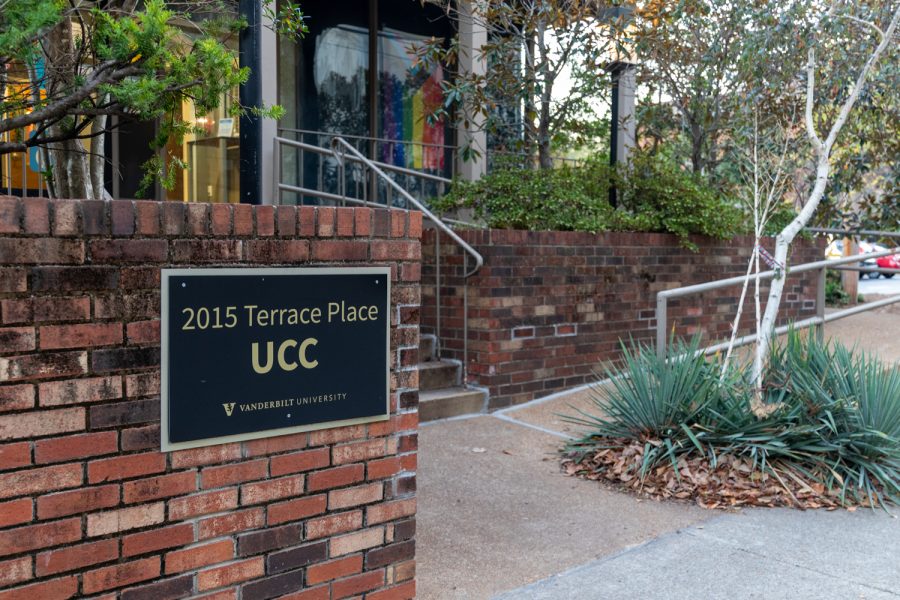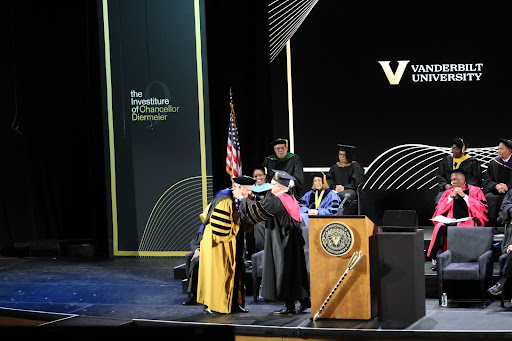CORRECTION: This story has been corrected to clarify that the quote from section 5.d. of the Membership and Procedures of the Board of Trust is outdated.
UPDATED: This story has been updated with a quote from a Dores Divest representative about the Young Alumni Trustee position.
Beginning on July 1, 2023, the Vanderbilt Board of Trust will begin biennial nominations of a Young Alumni Trustee. All undergraduate, graduate and professional student alumni within 10 years of graduation are eligible for the two-year term. Prior to the Young Alumni Trustee, only undergraduate student alumni were eligible to be the Young Alumni Leader.
The Board of Trust is a decision-making entity that works with the chancellor to determine the university’s vision for the future, including review of its finances and investments, student and faculty composition, governance structure and institutional strategic initiatives. As a member of the Board, the Young Alumni Trustee will have the opportunity to delegate in these matters.
“The overall vision is to build a diverse, committed and experienced Board to benefit the entire campus community whose most important constituents are the students,” Maribeth Geracioti, secretary to the Board of Trust, said in an email to The Hustler.
On Nov. 13, 2020, the Board approved the Young Alumni Trustee initiative, which was prepared by its Governance and Board Affairs Committee, a group responsible for reviewing the Board’s Code of Bylaws and proposing changes, including membership procedures. Prior to that date, the Board conducted annual nominations of a Young Alumni Leader, for which only undergraduate alumni were eligible. The position entailed service for three years on the Alumni Association Board—a network for alumni to gain exposure to postgraduate experiences—and a subsequent two-year term on the Board.
Current Young Alumni Leaders will complete their full terms on the Alumni Association Board and the Board of Trust.
Damonta Morgan, a current Young Alumni Leader, questioned the new Young Alumni Trustee program and its potential benefit to the student body. He expressed that the Governance and Board Affairs Committee may have intended to prioritize the election of a graduate and professional alumnus over an undergraduate alumnus, as they likely have had more work experience to offer to the Board.
“The experience of graduate students is materially different from the experience of undergraduates at Vanderbilt,” Morgan said. “I think it was short-sighted to extend [the Young Alumni Trustee] in that way because I think graduate students are much less in tune to the conversations of undergraduates than vice versa.”
However, Geriacioti expressed that the decision was meant to uphold aspects of the university’s mission statement, which advocates for the collaboration of people with diverse backgrounds, experiences and points of view.
“The desire was to expand eligibility to graduate and professional students for a more diverse mix of experiences and ages, also reflecting the One Vanderbilt mission,” Geriacioti said.
According to the Membership and Procedures of the Board of Trust, the prior Young Alumni Leader was nominated by fellow students; however, the new decision states that the Governance and Board Affairs Committee will now be responsible for nominating Young Alumni Trustees.
“In determining [the Young Alumni Leader], the Alumni Association is asked to hold an election in which members of the class to be graduated and of the next preceding class and next succeeding class vote, choosing one nominee from among three persons proposed by a committee appointed by the President of the Alumni Association, which committee shall include members from the next preceding class and next succeeding class,” section 5.d. of the Membership and Procedures of the Board of Trust previously read in 2009.
In a message to The Hustler, Miguel Moravec, a graduate student organizer of Dores Divest, said that the Board’s changing of this nomination process diminishes the voices of student movements.
“The board’s decision to eliminate the ‘student vote’ part of the young trustee position reveals a university governance structure that is fundamentally afraid of the democratic judgment of its student body on important issues such as fossil fuel divestment,” Moravec said. “While our peers at Brown or Harvard enjoy anywhere from 13 to 30 alumni elected seats, Vanderbilt now boasts a whopping 0 community elected positions.”
Geriacioti stated the Board of Trust has not considered expanding the Young Alumni Trustee position to allow an undergraduate and graduate alumnus to serve at the same time.
“The Board considers membership procedures on an ongoing basis, per the Code of Bylaws, and at this time segueing to one Young Alumni Trustee (whether outgoing undergraduate, graduate or professional student) is consistent with the nomination and election of one Alumni Trustee,” Geracioti said.
Geracioti added that all Young Alumni Leaders, Dean of Students staff and Development and Alumni Relations staff were asked for input to the initiative.
“Vanderbilt was one of the first institutions to create a trustee designation for young alumni in 1968, and it is one of the very few peer institutions to maintain the position with full voting privileges,” Geracioti said. “As the University has changed over the past 50+ years, the Board of Trust adapts accordingly, including membership procedures, to ensure effective fiduciary oversight so our students have every opportunity to excel.”








